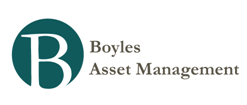Money and Finance
- The Daily Princetonian Speaks To Paul Volcker
Link to interview: Q&A: Former Federal Reserve chairman Paul Volcker '49 DP: Pretty recently, some economists have suggested that the central bankers took [the threat of] inflation too seriously. PV: I’ll give you a simple answer. The responsibility...
- Hussman Weekly Market Comment: Out On A Limb - An Investor's Guide To X-treme Monetary And Fiscal Conditions
Government intervention in the U.S. economy is approaching the point where probable long-term costs exceed short-term benefits – straining to maintain the pace of extraordinary fiscal and monetary measures that have repeatedly nudged the U.S. economy...
- Hussman Weekly Market Comment: Simple Arithmetic
As I've noted several times in recent months, bond market spreads imply very low near-term (3-6 month) probability of default in any Euro-area country. A sovereign default is much more likely to occur near the end of the next bear market, whenever...
- Hussman Weekly Market Comment: Bubble, Crash, Bubble, Crash, Bubble...
Last week, the Federal Reserve confirmed its intention to engage in a second round of "quantitative easing" - purchasing about $600 billion of U.S. Treasury debt over the coming months, in addition to about $250 billion that it already planned to purchase...
- Wcam: How Inflation Became The Good Guy
Inflation has been an all-purpose bogeyman since the 1970s, but a small amount of inflation comes with a healthy, growing economy. The Federal Reserve focuses on managing inflation, not preventing it. We have written often that we feel the government...
Money and Finance
Inflation and Debt – By John H. Cochrane
For several years, a heated debate has raged among economists and policymakers about whether we face a serious risk of inflation. That debate has focused largely on the Federal Reserve — especially on whether the Fed has been too aggressive in increasing the money supply, whether it has kept interest rates too low, and whether it can be relied on to reverse course if signs of inflation emerge.
But these questions miss a grave danger. As a result of the federal government's enormous debt and deficits, substantial inflation could break out in America in the next few years. If people become convinced that our government will end up printing money to cover intractable deficits, they will see inflation in the future and so will try to get rid of dollars today — driving up the prices of goods, services, and eventually wages across the entire economy. This would amount to a "run" on the dollar. As with a bank run, we would not be able to tell ahead of time when such an event would occur. But our economy will be primed for it as long as our fiscal trajectory is unsustainable.
Needless to say, such a run would unleash financial chaos and renewed recession. It would yield stagflation, not the inflation-fueled boomlet that some economists hope for. And there would be essentially nothing the Federal Reserve could do to stop it.
This concern, detailed below, is hardly conventional wisdom.
- The Daily Princetonian Speaks To Paul Volcker
Link to interview: Q&A: Former Federal Reserve chairman Paul Volcker '49 DP: Pretty recently, some economists have suggested that the central bankers took [the threat of] inflation too seriously. PV: I’ll give you a simple answer. The responsibility...
- Hussman Weekly Market Comment: Out On A Limb - An Investor's Guide To X-treme Monetary And Fiscal Conditions
Government intervention in the U.S. economy is approaching the point where probable long-term costs exceed short-term benefits – straining to maintain the pace of extraordinary fiscal and monetary measures that have repeatedly nudged the U.S. economy...
- Hussman Weekly Market Comment: Simple Arithmetic
As I've noted several times in recent months, bond market spreads imply very low near-term (3-6 month) probability of default in any Euro-area country. A sovereign default is much more likely to occur near the end of the next bear market, whenever...
- Hussman Weekly Market Comment: Bubble, Crash, Bubble, Crash, Bubble...
Last week, the Federal Reserve confirmed its intention to engage in a second round of "quantitative easing" - purchasing about $600 billion of U.S. Treasury debt over the coming months, in addition to about $250 billion that it already planned to purchase...
- Wcam: How Inflation Became The Good Guy
Inflation has been an all-purpose bogeyman since the 1970s, but a small amount of inflation comes with a healthy, growing economy. The Federal Reserve focuses on managing inflation, not preventing it. We have written often that we feel the government...

